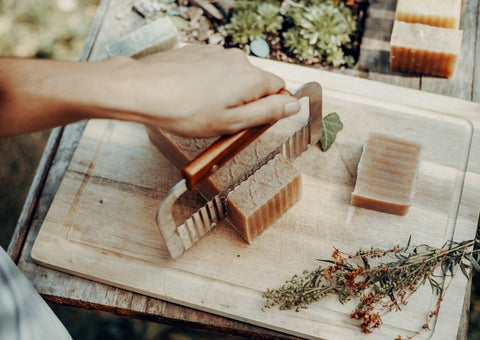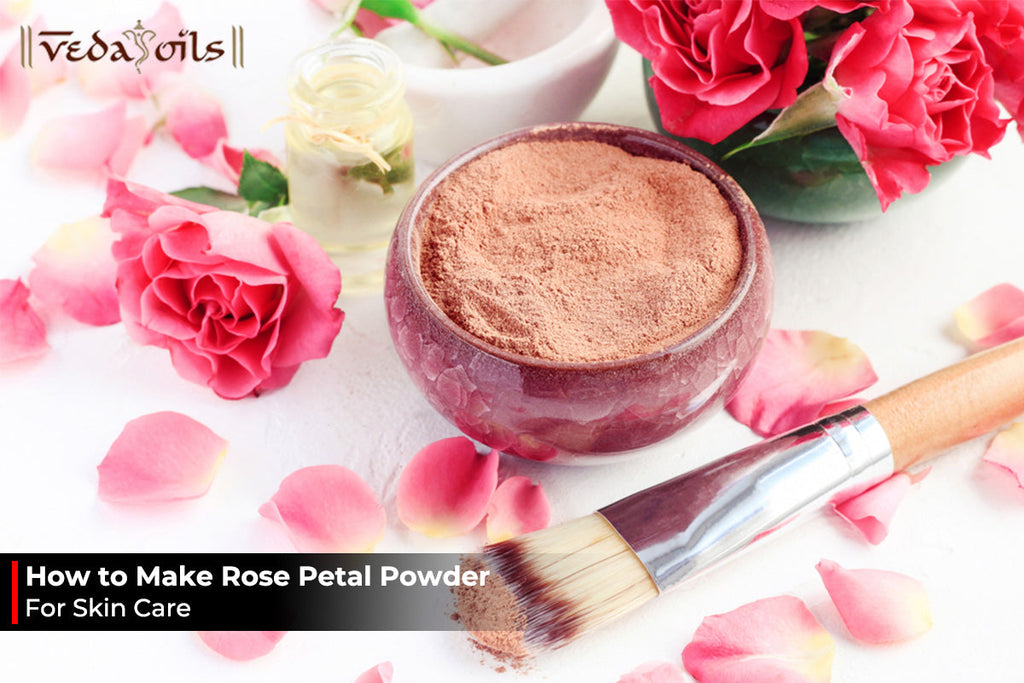Castor Oil For Soap Making - Benefits & How To Use It
Castor oil is obtained from castor beans and is known for its thickness. It is one of the best moisturizing ingredients for your skin. Due to its skin conditioning and softening properties, it is often used for making soaps.

Its unique composition of fatty acids makes it one of the best oils for making soaps. To make a Castor Oil soap recipe, you must add castor oil to the soap-making process. Usually, it constitutes up to 10% of the overall ingredients in the recipe. Using more than 10% can make your soaps greasy.
Why Use Castor Oil For Soap Making?
Making Castor Oil Soap Recipe is easy, and the finished soaps will also contain many skin-friendly properties. For instance, Castor Oil makes skin soft, and its anti-inflammatory properties care for various skin issues. It increases the hydrating properties of the soap and can be excellent for all types of skin.
Benefits of Castor Oil For Soap Making
Castor Oils offer several benefits for your skin. It maintains your skin's hydration level and provides quick relief from skin itchiness and dryness. It possesses antibacterial and antiseptic qualities that help to heal wounds and cuts. Some of the critical benefits of Castor Oil are explained below:

1. Prevents Wrinkles: Ageing can result in wrinkles on your face and body. However, regular application of Castor Oil to the affected areas can reduce the wrinkles magically. It does so by restoring the moisture and boosting the collagen that makes your skin tight and firm.
2. Fights Acne: Castor Oil is known for its potent antimicrobial properties. It is also bactericidal, which means it expels harmful bacteria from your skin. These bacteria also include those that are mainly responsible for acne formation. It's a good idea to have castor oil in soap because we use soap often, which will protect us from harmful bacteria.
3. Soothes Burns: Castor Oil's anti-inflammatory properties are effectively against sunburns or burns. Its cooling effects provide quick relief from inflammation, while its skin regenerative properties ensure that your skin recovers quickly from the damages caused due to burns.
4. Moisturizes Skin: The hydrating properties of castor oil work best for those who have dry skin. It not only nourishes the skin but also maintains its texture and health. You can also apply castor oil over lips to make them soft and plumpagain!

5. Brightens Skin: People with oily or acne-prone skin can avoid using too much Castor Oil on their face. However, others can apply it to their face due to its anti-pigmentation properties. Due to these properties, the dark patches of your skin fade, and eventually, your skin becomes bright when used daily. Mixing castor oil in soap will do good things to your skin.
How To Use Castor Oil in Soap Making?
You might be aware of the numerous benefits of Castor Oil for soap making. However, to make Castor Oil soap recipes at home, you must understand the soap-making process completely.

Method Of Using Castor Oil in Soap Making
Regular Castor Oil can be used in soaps, but it would be easy if you use Jamaican Black Castor Oil. This variety is easy to use and blends easily with other soap-making ingredients.
Castor Oil can be added to both hot and cold process soaps. In a hot process, you must add Castor Oil when the melted soap base is below 250-degree Fahrenheit.

Around 5 to 8% of Castor Oil can be added to hot process soaps. In the cold process soaps, you must add 2 to 5% of the Castor Oil. Castor Oil provides excellent lathering properties and is healthy for the hair.
Conclusion
We hope that you have understood how to use Castor Oil in melt and pour soaps, cold process soap, and hot process soaps. Making cold-process soap recipes with Castor Oil is easy as you can avoid heating and other complex processes.
However, you must include lye and other ingredients to make Castor Oil cold process soap. To get natural and safe ingredients for soap making, you can visit the official website of VedaOils. Here you will find soap bases, Castor Oil, and other soap-making supplies at economical rates.
You May Also Like:
Buy Products
Related Articles
-
 DIY Tanning Oil - Best Homemade Recipes For Tan Removal
DIY Tanning Oil - Best Homemade Recipes For Tan Removal -
 Homemade Mustache Wax: Best DIY Recipe With Natural Ingredients
Homemade Mustache Wax: Best DIY Recipe With Natural Ingredients -
 Kojic Acid vs. Glycolic Acid: Which Is Better for Skin Whitening?
Kojic Acid vs. Glycolic Acid: Which Is Better for Skin Whitening? -
 5 Best Grades of Essential Oils - The Grading System
5 Best Grades of Essential Oils - The Grading System -
 How to Make Rose Petal Powder For Skin Care Homemade Recipe
How to Make Rose Petal Powder For Skin Care Homemade Recipe -
 Homemade Coffee Scrub Soap Recipe for Face & Body Care
Homemade Coffee Scrub Soap Recipe for Face & Body Care
Disclaimer :- This article is intended for informational and educational purposes only and should not be considered a substitute for professional medical advice. For specific health concerns or treatment, please consult your personal physician. The article's editor, writer, and VedaOils organization do not assume any responsibility for any health outcomes resulting from the information provided. Readers are strongly encouraged to seek advice from their physician before acting on any recommendations made in these articles.
















 Sign in
Sign in Register now
Register now My Reward Points
My Reward Points








